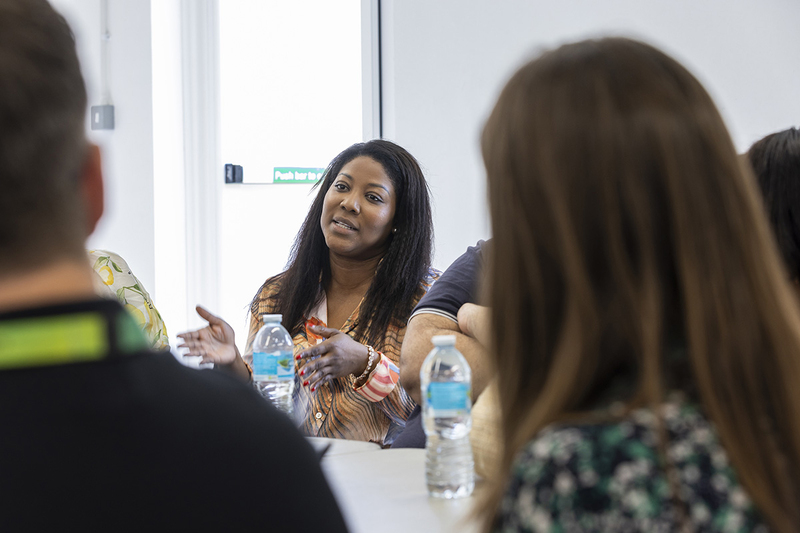She found out about JobsPlus after calling L&Q about a repair. “I just live up the road. The convenience of being so close was amazing,” she says.
“I wasn’t working, because I decided to look after my mum, but now the carers are in place so I can do something with myself. The first contact [with JobsPlus] was nice, because I feel like the person is not judging you. And then he [Mr Hayday] started telling me that I’m capable.”
Ms Campos found a job as a community centre assistant – she looks after projects at three community centres, including here at Seddon. One key requirement of JobsPlus is that anyone from the area can access support, not just tenants of the landlord, but Ms Campos is an L&Q tenant and now an employee, too.
She thinks JobsPlus worked for her because there was no pressure to just take the first job she was offered. This sets the programme apart from Jobcentre Plus.
Mohammed Asim, another JobsPlus participant, has even stronger feelings about Jobcentre Plus. “[It] is like a graveyard. No offence to the job centre, but they have no idea. They make you feel like you’re some prisoner,” he says.
“I’ve never been on benefits before. I have been a working lad for the past 23 years and paying my taxes. So my actual experience of the job centre was quite daunting,” he adds.
By contrast he is so positive about JobsPlus, and particularly Mr Hayday, that he caveats with a joke: “Don’t worry, he’s not paying me to say this.”
“It kind of boosted my confidence,” Asim explains. “Sitting down with someone one-to-one is much better than going every couple of weeks and meeting a random stranger who has no idea about what you’re going through, or [what] your stresses are.”
‘Got me up on my feet’
Asim worked in security, but he struggled to get work after the coronavirus lockdown.
“Being here [at JobsPlus] got me up on my feet,” he says. “I’ve just been awarded a job to work for the Crown Prince of Dubai. Now I’m employed directly by the royal family. I’ve been contracted as well, so whether they’re in London or they’re not, I still get paid.”
Mr Hayday says: “I think quite quickly you worked out I was OK and I could help you.”
Mr Hayday’s team is currently supporting 56 people. “Obviously there’s varying challenges to getting them into work,” he says. “If you’ve got a chap like him,” he says, gesturing to Asim, “or someone like Olga [given the team’s experience coaching people in their careers], I wouldn’t say it’s easy, but the mechanisms are in place to get them into work. Some people, if they’ve got other barriers… sometimes that journey is a little bit longer.”

